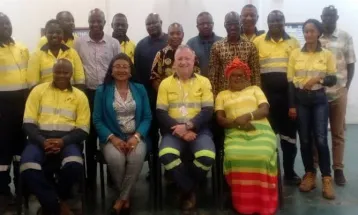
"AYV's Phebean Swill Challenges Tradition: Asserts Jesus Was Not Born on December 25, Advocates for Conscious Christmas Celebrations"
In a thought-provoking departure from the conventional celebration of December 25th as the birthdate of Jesus Christ, Phebean Swill, a prominent journalist from Africa Young Voices (AYV) Television, has sparked controversy with her alternative perspective. Challenging the widely accepted narrative, Phebean Swill took to social media to assert that Jesus was not born on December 25, prompting a call for Christians to reconsider their traditional festive decorations.
In her social media post, Swill contends that the commemoration of Christmas with trees and garlands amounts to pollution of the environment. She advocates for a conscious choice among Christians to take down Christmas decorations, aligning their practices more closely with the teachings of Christ. Despite acknowledging that belief is a personal choice, Swill remains steadfast in her assertion that the factual date of Jesus Christ's birth remains unknown.
Her message, shared on various platforms, reads: "And I still say, Jesus Christ was NOT born on December 25. If you're truly a Christian, following Christ, you'll take down your Christmas trees and garlands and not pollute your environment. Your choice to believe or not doesn't change the facts. None of us truly know the date Jesus Christ was born as a human. But it certainly isn't December 25. May Christ be born in someone's heart today."
This bold statement challenges the conventional wisdom surrounding Christmas celebrations and prompts believers to reconsider the historical accuracy of the chosen date. Swill's call for environmental consciousness aligns with a broader message of mindful celebration.
As Sierra Leoneans engage with this controversial viewpoint, Phebean Swill's perspective serves as a catalyst for reflection and discussion, inviting individuals to revisit the cultural and religious practices associated with the festive season. The debate sparked by her statement provides an opportunity for individuals to explore the historical roots of Christmas traditions and question long-held beliefs. It remains to be seen how this alternative perspective will shape conversations around Christmas in Sierra Leone and beyond.




















